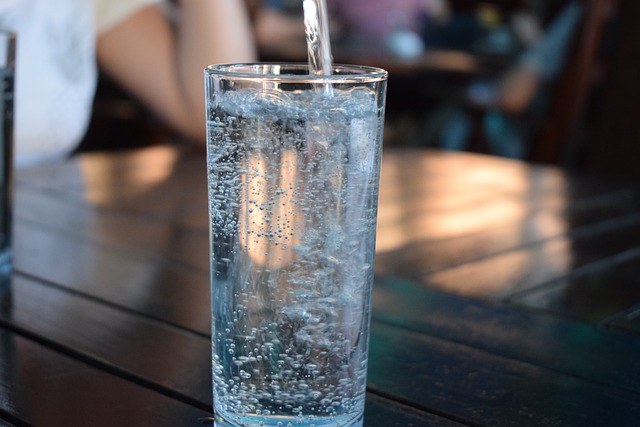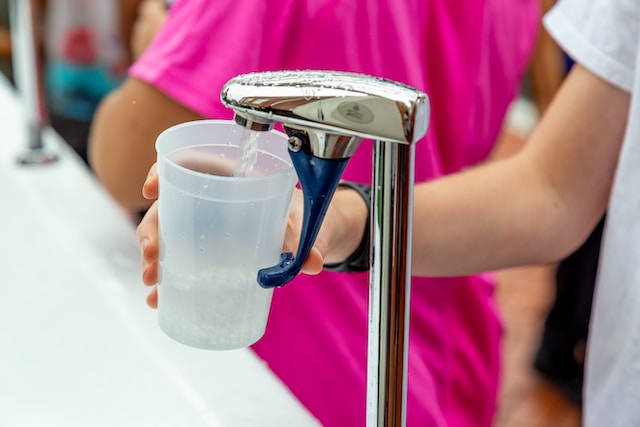Tap water is easily accessible and contains essential minerals that are important for human health, it may also contain harmful contaminants like pesticides, lead or chlorine that can damage our health in the long run. On the other hand, distilled water has been purified through a special process which removes all impurities including mineral content.
What is distilled water?

Distilled water is a type of purified water that has gone through a unique process to remove impurities and minerals. The process involves boiling the water until it turns into steam, which is then collected and condensed back into a liquid form. This condensation leaves behind any contaminants or particles that were in the original water source.
Distillation is often used for scientific experiments, medical procedures, and industrial applications because of its high purity levels. However, some people also choose to drink distilled water for its perceived health benefits.
One advantage of drinking distilled water is that it doesn’t contain any harmful chemicals or bacteria commonly found in tap water. It’s also free from minerals like calcium and magnesium, making it ideal for certain medical conditions where these substances could cause complications.
On the other hand, some experts warn against drinking distilled water regularly as it lacks essential minerals that our bodies need to function properly. Prolonged consumption of distilled water could lead to mineral deficiencies over time.
While distilled water may have its uses in certain situations, regular consumption should be approached with caution and under the guidance of a healthcare professional.
Tap water Vs. Distilled water – Key differences
(Photo by LuAnn Hunt on Unsplash )

When it comes to choosing between tap water and distilled water, there are several key differences that you should be aware of. Firstly, tap water is the water that comes straight from your faucet or local municipal supply system. It may contain added chemicals such as chlorine and fluoride for purification purposes.
On the other hand, distilled water undergoes a process of distillation where all impurities, minerals and contaminants are removed through boiling and condensation. This results in a pure form of H2O with no added chemicals or minerals.
Another major difference is taste. Tap water often has a distinct taste due to the presence of minerals like calcium and magnesium while distilled water has no flavor at all.
When it comes to health benefits, both types have their own advantages. Tap water contains essential minerals that our bodies need while drinking distilled water regularly can help eliminate toxins from the body more effectively.
In terms of cost-effectiveness, tap water is significantly cheaper compared to buying bottled distilled waters which can add up quickly over time.
While both types have their pros and cons, it ultimately depends on personal preference and needs when deciding which type of drinking-water works best for you.
The benefits of drinking distilled water
Drinking distilled water has become increasingly popular in recent years due to its numerous health benefits. Unlike tap water, which can contain harmful chemicals and minerals, distilled water is pure and free of impurities.
One of the main benefits of drinking distilled water is that it helps detoxify your body. Since it contains no impurities or contaminants, it can help flush out toxins from your system and promote overall well-being.
Distilled water may also improve digestion by reducing acidity levels in the stomach. This can lead to better nutrient absorption and fewer gastrointestinal issues.
In addition, drinking distilled water may benefit those with skin conditions such as eczema or acne. The purity of the water can help cleanse the skin from within and potentially reduce inflammation caused by certain irritants found in tap water.
Another advantage of consuming distilled water is that it may improve hydration levels more effectively than regular tap or mineral waters due to its lack of minerals that may interfere with absorption rates.
There are many potential health benefits associated with drinking distilled water regularly. As always though, ensure you consult a healthcare professional before making any significant changes to your diet or lifestyle habits.
The disadvantages of drinking distilled water
While distilled water does have some benefits, it also comes with its own set of disadvantages. One of the main drawbacks is that it lacks essential minerals that are naturally found in tap water. These minerals include calcium, magnesium and potassium which play a crucial role in maintaining healthy bodily functions.
Drinking only distilled water can lead to mineral deficiencies which may result in weak bones, muscle cramps and even heart problems over time. It’s important to note that these issues will typically arise after prolonged consumption of purely distilled water.
Another disadvantage is the taste or lack thereof. Distilled water has no taste as all impurities including minerals have been removed during the distillation process. This may make it less appealing for those who prefer a slightly more flavorful drink.
While boiling water at home can provide you with purified drinking water it’s important to remember that this isn’t necessarily equivalent to distilled water. Boiling removes some impurities but not all – specifically volatile organic compounds (VOCs) such as benzene and pesticides which happen to be highly resistant against high temperatures.
In summary, while there are definite benefits associated with consuming distilled water on a limited basis, routine intake may potentially lack essential nutrients over an extended period leading to health risks down the road
How to make distilled water at home
Making distilled water at home is a simple process that requires only a few basic items. To begin, you’ll need a large pot with a lid, some ice cubes, and a heat-resistant glass bowl that fits inside the pot without touching the bottom.
Start by filling the pot halfway with tap water and placing the glass bowl in the center. Next, place the lid on top of the pot upside down, so that it forms an inverted cone over the bowl.
Add plenty of ice to cover the lid and turn up your stove to high heat. As steam rises from boiling water into contact with cold surface above (the inverted cone), it will condense back into liquid form as pure distilled water droplets which will fall into your glass bowl beneath.
After about 30 minutes or so, you should have collected enough distilled water for most purposes! Just let it cool before using or storing in clean bottles. And voila – You now have fresh and safe drinking water free from impurities found in regular tap-water!
Is boiled water a distilled water?
Boiling water is a common method used to purify drinking water. When boiled, the heat kills bacteria and other microorganisms that can cause illness. However, boiling water does not make it distilled.
Distilled water is created by boiling water until it becomes steam. The steam is then collected and cooled back into pure liquid form without any impurities or minerals. Boiled water still contains minerals and contaminants that are not removed through the process of boiling alone.
While boiled water may be safe to drink in some cases, it’s important to note that it does not have the same level of purity as distilled water. If you’re looking for the highest quality drinking water possible, investing in a home distillation system may be your best option.
However, if purchasing a distillation system isn’t feasible for you at this time, boiling your tap water can still provide an extra layer of purification before consumption. Just keep in mind that boiled water isn’t considered distilled and may contain trace amounts of impurities depending on its source.
Featured Image By – Susanne Jutzeler, Schweiz 🇨🇭 💕Thanks for Likes from Pixabay








